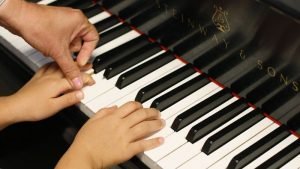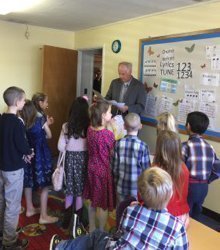
March 20, 2017 | by Tim Challies
It was a joy to finally visit your church a couple of Sundays ago, and to worship with the believers there. You know I’ve been looking forward to it for a long time. Just as you promised, the pastor is an excellent communicator and a man who loves God’s Word. His sermon was deeply challenging and led to some great conversations with my children.
Now, you asked me why it looked like I wasn’t singing. I know that was probably a little awkward, so thought I’d send along a brief explanation. Primarily, it’s because…
…I was not familiar with the songs. Your church has a tremendously skilled group of musicians leading them and it was a true joy to hear them play and sing. They sound as good live as they do on their album! But, unless I missed something, all of the songs on that Sunday were drawn from their own music. There weren’t any hymns in the service or even any familiar worship songs. So it’s not that I didn’t want to sing; it’s just that I didn’t know the songs. I want to be fair—every church has some of its own songs, and there is nothing wrong with that. I tried to follow along the best I could so I could learn some of yours, but even then…
…the songs weren’t congregational. Most of them seemed to have been written with the band in mind more than the congregation. What I mean is that they were unpredictable and often went beyond my vocal range and ability. This made them tough to learn and difficult to sing. Sometimes I would just begin to think I had it, but then…
Read the rest of the article at Tim Challies’s blog

 I
I  Music Lessons Were the Best Thing Your Parents Ever Did for You, According to Science
Music Lessons Were the Best Thing Your Parents Ever Did for You, According to Science You may have noticed that hymns are not very popular in many of our churches. To preserve these musical statements of faith, we need to pass them on. That is what I am trying to do with PraiseNotes.com, as well as in my own local church.
You may have noticed that hymns are not very popular in many of our churches. To preserve these musical statements of faith, we need to pass them on. That is what I am trying to do with PraiseNotes.com, as well as in my own local church.